I shudder to think how many hours I wasted as a teenage girl, swaying dreamily to Richard Marx’s massive hit ‘Right Here Waiting’ while gazing at a picture of him and his BIG hair.
Born in Chicago in 1963, Marx has been performing, song writing and producing music for nearly 30 years, although he actually began his entertainment career when he was 5, singing advertising jingles that his father’s company wrote. He’s sold over 30 million albums across the globe, including his eponymously titled debut and the quadruple-platinum Repeat Offender.
Sometimes, to get ahead in your chosen profession you need to work, work and work for years and years. Other times, you just need Lionel Richie. The ‘Dancing on the Ceiling’ legend heard a tape that Marx had made and encouraged him to move out to LA, where Marx ended up singing backing vocals on one of the tracks on Richie’s first solo album (again, this was named after himself…there’s a definite lack of imagination here) in 1982, and two on his 1983 follow-up ‘Can’t Slow Down’, including the impossible-not-to-shimmy-along-to ‘All Night Long’.
Marx continued to work in the music industry in various guises and landed jobs as a backing singer for huge 80’s artists like Luther Vandross, Whitney Houston and Madonna. During this time he also started writing his own songs and it was during a session recording with Kenny Rogers that he was able to play him the demo of ‘Crazy’ and ‘What About Me?’ which Rogers went on to record and watch hit the charts. From this, Marx went on to work with Canadian musician and producer David Foster and write songs for Freddie Jackson and the group Chicago.
Despite creating successful music for others, it took Marx four years to get a recording deal in his own right. His demo tape was rejected by every label until it was heard by Bruce Lundvall, the president of EMI/Manhattan Records. Bruce realised Marx’s talent, signed him up and Marx was able to create his self-titled debut.
The first single from that album, Don’t Mean Nothing, sold nearly 4 million copies in America alone. Released in June 1987, its lyrics warned of how difficult it is to make it in the music business and it reached number three on the Billboard Hot 100 chart. The follow ups, Should’ve Known Better and Endless Summer Nights (I can’t listen to the intro beat of this one without immediately launching into Roxette’s It Must Have Been Love) also charted highly, getting to number three and two respectively but it was single number four, Hold On To the Nights (the kind of tune that was perfect for the slow number at the end of school discos) that got him his first number one. These achievements made him the first U.S. male artist to reach the Top 3 with four singles from a first album.
A tour supporting REO Speedwagon followed before he began headlining shows in his own right and in 1988 he received a ‘Best Male Rock Vocal Performance’ Grammy nomination for Don’t Mean Nothing.
Marx’s second album, Repeat Offender, knocked Prince’s Batman soundtrack off of the number one spot in September 1989. This one spawned five huge singles with the first two, Satisfied and sway-fest ballad Right Here Waiting giving him the number one spot twice more (Right Here Waiting also got him his second Grammy nomination in 1990 for ‘Best Male Pop Vocal Performance). Angelia got to number four, making Marx the first (and at the moment, only) U.S. solo artist to get his first seven singles into the Top 5.
Throughout 1989 and into 1990 Richard toured his music across the globe once more, including playing at the Royal Albert Hall in the UK and the Berlin Wall in Germany.
Rush Street became Marx’s third platinum album after its release in 1991 and featured one of his best known songs, Hazard, which went to number one across the globe. Paid Vacation came next, in 1994: this too went platinum and single Now and Forever reached number seven on the Hot 100 and stayed at number one on the Adult Contemporary charts for 11 weeks. In 1997 came Flesh and Bone, which didn’t reach the same heights as the previous four, selling only 250,000 copies in the U.S. although it did get to number one in several other countries.
A greatest hits album (called exactly that) came out in November 1997 and three years later Marx released his sixth album, Days in Avalon, which he put out via his own record label Signal 21 Records (formed with Blood, Sweat & Tears drummer Bobby Colomby). The title track lasted for 12 weeks on the Adult Contemporary chart and Signal 21 was wound up soon after.
Album My Own Best Enemy (on his former label Manhattan Records) debuted in 2004, with two singles, When You’re Gone and Ready to Fly, coming off it. In 2008 he and Matt Scannell (singer with group Vertical Horizon) collaborated on Duo, an acoustic album of a selection of both their own hits. They also added a new song, written together, called Always on Your Mind which you could download via Marx’s website.
Marx also released further tracks through his site: 2008’s albums Emotional Remains and Sundown were released at the same time, as digital downloads. In 2010 he released the acoustic album Stories To Tell.
His last, to this date, studio album, Beautiful Goodbye, was completed in 2014 but before that he came to a path that many artists seem to inevitably wander down at some point in their career: the dreaded Christmas album (think Destiny’s Child, Beach Boys, Elvis, Frank Sinatra, Kylie etc.). In Marx’s case, however, it was not just one but two. In 2011 he put out the five track The Christmas EP and, if that wasn’t enough, 2012 saw the full length Christmas Spirit hit the shops. (I’ve just listened to the title track on YouTube and it’s as horrific as I feared.)
Marx has been a prolific songwriter over the years – not just for his own career but for writing and producing for many other well-known artists too, including John Farnham, Cliff Richard, Barbra Streisand, Natalie Cole, NSync, Michael Bolton and Bonnie Tyler. He also co-wrote the emotional Dance with My Father for Luther Vandross in 2003, winning a Song of the Year Grammy for it in the process.
Marx is still going strong. Collaborations, tours, television appearances and more song writing sit alongside an amazing amount of charity work. He donated all royalties from his track Should’ve Known Better to help build a room at the NYU Medical Centre for child cancer patients and all his royalties from the song Children of the Night went to the Children of the Night Foundation, a Los Angeles based charity that works with homeless children. Angel’s Lullaby, a song written about his own three children, appeared on For Our Children, Too, a compilation CD released to help the Pediatric AIDS Foundation and he has performed benefit concerts and hosted events for many other good causes, including raising over $4 million for the Cystic Fibrosis Foundation.
Many people will, quite rightly, remember him for this charity work but for me it will always be for 1989, for the many happy hours I spent tunelessly wailing fervently along to his soft rock ballads and wondering how I could get my hair as big as his. I loved Richard Marx so much that summer that I can almost forgive him for all that later Yuletide nonsense. And that’s saying something.





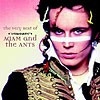
 - Booklet-1-square-100x100.jpg)
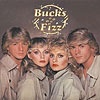
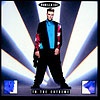
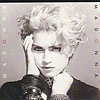

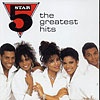



Do You Remember Richard Marx?
Do You Remember Richard Marx?